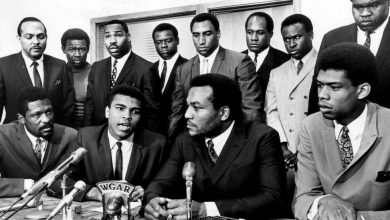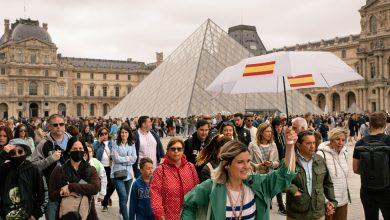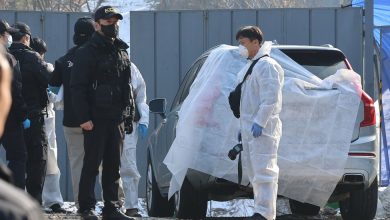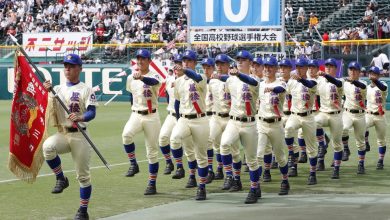What are war crimes, and how are they prosecuted?

World leaders have vowed to hold President Vladimir V. Putin responsible for war crimes as evidence mounts that Russian forces killed civilians in Ukraine.
The Kremlin has denied the allegations and says that recent images from the Kyiv suburb of Bucha, which was liberated from Russian control in the past week, were staged. But President Biden has called him a war criminal. And President Volodymyr Zelensky has said Mr. Putin is responsible for genocide.
If past prosecutions of war crimes are any indication, the process is arduous and thorough, and takes years of investigations and litigation that are only decided decades after a conflict ends.
Here’s what you need to know:
What is a war crime?
A war crime is an act committed during armed conflict that violates international humanitarian laws designed to protect civilians. The rules of war are codified in various treaties, including the Geneva Convention of 1949 and the Hague Conventions of 1899 and 1907.
The primary entity that can hold individuals accountable for war crimes is the International Criminal Court. It was established in 1988 through a treaty known as the Rome Statute that lists actions that can be prosecuted as war crimes, including willful killings, torture and intentional attacks on civilians. Some cases have been brought before special tribunals created by the United Nations.
What evidence is there of potential war crimes in Ukraine?
Ukraine’s prosecutor general, Iryna Venediktova, said the bodies of 410 people, apparently all civilians, have been recovered from the Kyiv region. Human Rights Watch said it had documented cases of rape, executions and looting of civilian property.
The New York Times has reported accounts of indiscriminate killings, torture and other violence against civilians. The I.C.C. had already launched a criminal investigation of possible war crimes in early March.
“What they did in Bucha, or the bombing of a hospital or a school, those are prima facie war crimes,” said Kwon O-Gon, an expert on international law who served as a judge on the International Criminal Tribunal for the Former Yugoslavia.
How are war crimes investigated?
War crimes are investigated as any criminal activity would be, through interviewing witnesses, reviewing photos or videos and collecting forensic evidence, including ballistics analysis, autopsies or DNA testing. Prosecutors need to prove beyond a reasonable doubt that individuals knowingly committed the crimes.
Tougher to prove is how much a head of state knew and or was directly responsible for what happened under their command.
What are the chances Vladimir Putin will be held accountable?
The I.C.C. does not have its own police force or military. The court is reliant on states to hand over its owns citizens to the court for prosecution. That’s unlikely to happen with Russia’s high-level officials, much less Mr. Putin.
Russia-Ukraine War: Key Developments
Russian atrocities. The growing evidence that Russian soldiers killed scores of civilians in the Kyiv suburb of Bucha, leaving their bodies behind as they withdrew, spurred calls by Western leaders to hold Russia accountable. A Times analysis of satellite imagery refuted claims by Russia that the killings occurred after its soldiers had left.
Pushing for more sanctions. The images of dead Ukrainians prompted some E.U. leaders to demand a total ban on Russian gas imports, though the bloc is divided over taking such a drastic step. President Biden said what happened in Bucha was a “war crime” and that the United States would bring “more sanctions” against Moscow.
On the ground. As Russian forces have retreated around Kyiv, Ukrainian and Western officials said that Russia appeared to be positioning troops for an intensified assault in the eastern Donbas region, where the port city of Mariupol remains under a brutal siege.
Mr. Kwon noted there are no statutes of limitations for war crimes. Evidence or insider information could emerge years later, and Putin or others could be handed over to the court to ultimately be held accountable.
“Even if it takes 10 years or 20 years, even if it’s after Putin is removed from power, he could be brought to the dock,” Mr. Kwon said.
Which heads of state have been tried for war crimes?
Slobodan Milosevic, known as the “Butcher of the Balkans,” was the first former head of state to be tried for such crimes in 2002. He died in his cell in The Hague as his four-year trial drew to a close, before a verdict was reached.
Charles G. Taylor, the former president of Liberia, was sentenced to 50 years in 2012 for atrocities committed in Sierra Leone during its civil war in the 1990s. Laurent Gbagbo, former president of Ivory Coast, was acquitted of crimes against humanity and other charges related to violence that followed the country’s presidential election in 2010.
The I.C.C. issued an arrest warrant for Libya’s leader, Col. Muammar el-Qaddafi, in 2011 accusing him of crimes against humanity, but he was killed that October before he faced trial.
Former President Omar Hassan al-Bashir of Sudan is wanted by the court on charges of genocide and war crimes in the Darfur region, but he has not been turned over by Sudan’s transitional government.





